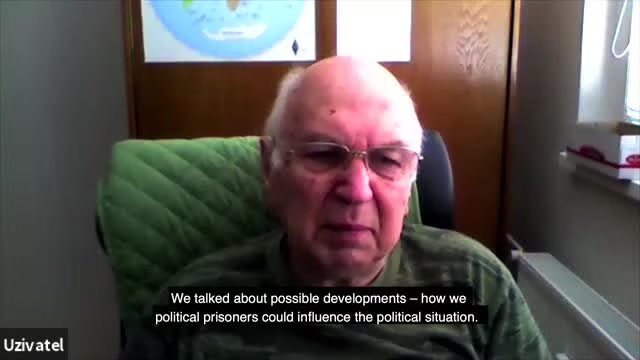Miroslav Kopt And The Secret Radio That Political Prisoners Built

Czechoslovak citizen Miroslav Kopt was arrested in 1954 and brutally interrogated by communist authorities before being sentenced to 10 years in prison for treason. He served six of these years in Prague’s notorious Pankrác prison before being sent to work in the uranium mines at Rovnost and Nikolaj, near Jachymov.
Speaking to an interviewer, Kopt said he considers the time spent after being in custody as the start of his intelligence work. After Pankrac, he said, “I was exhausted, almost all my teeth had been kicked out (I had the rest pulled out) and my red cell count was very low. I nearly died. They took me to Dr. Provazník, the prison’s main doctor. We became friendly. He helped me contact my family. I managed to smuggle inside my tooth a micro picture to another doctor in the Rovnost camp. And thus my intelligence activities began.”
As he recalled, “The camp Nikolaj was a fantastic school of life. Life in there was really well organized. There was a core group of prisoners who were ready to do anything. They were ready for real political work. Most of all we worked on doing away with the communist regime. This was done in great detail. I was a small part of it all – the radios were made there, foreign stations were listened to, and information about what was going on in the camp reached the outside world. In addition it was possible to listen to the discussions of the secret police and to the records of the wardens of the camps. But in 1956, because of some disclosures, it was all over.”
Kopt was released in 1960 as the result of an amnesty granted to most political prisoners to mark 15 years since the end of the Second World War. He continued his activism through the 1968 Prague Spring, even smuggling forbidden literature in Czechoslovakia and developing connections with RFE/RL. After the 1989 Velvet Revolution, he briefly served as a member of parliament for the Civic Forum before joining the Secret Service, where he worked up until his retirement in 1999.
This account was produced by external colleagues of NGO Paměti národa. It has been adapted from the original Czech by RFE/RL Pressroom. For comments or additions, please contact the editor in chief of Paměti národa at michal.smid@ustrcr.cz